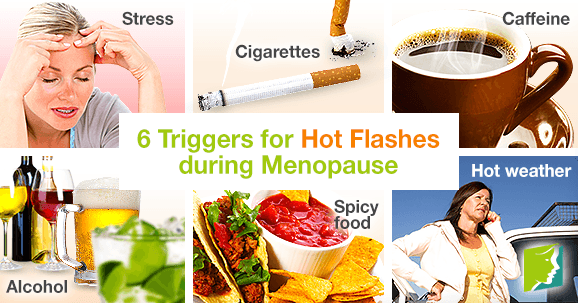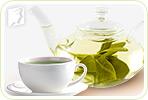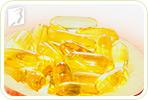Hot flashes are the most common symptom of menopause. They are essentially caused by hormonal fluctuations, but there are some triggers that can be avoided in order to reduce their frequency and severity.
Stress
The amount of stress present in a women's life is directly linked to hot flashes. Research shows that women with chronically high levels of stress are three to five times more likely to experience frequent and severe hot flashes.
Stress causes the body to tighten its muscles and speed up heart rate. These are all reactions meant to prepare your body for imminent danger, but when they become chronic, they can raise your body's temperature and bring on a hot flash. You may not be able to get rid of the things in your life that cause you to be stressed, but you can find coping mechanisms to help you to reduce the impact that stress has on you. This can include meditation, drawing, or swimming.
Alcohol
Alcohol is well-known for its heating effect on the body. This is the last thing you want if you are prone to hot flashes. Alcohol impacts a person's internal body temperature and this can trigger hot flashes.
Caffeine
Caffeinated substances like coffee, black tea, energy drinks, and dark chocolate can trigger hot flashes. Caffeine causes your heart rate to increase and your blood vessels to dilate. This can trigger hot flashes.
Cigarettes
Researchers universally agree that nicotine can trigger hot flashes and make them more intense. Nicotine is a stimulant, and its immediate effects are very similar to the mechanisms that set off a hot flash. Furthermore, a smoking habit will dampen your ability to breathe deeply and thwart an incoming episode, and it has been linked to more severe symptoms of hormonal imbalance overall.
Spicy Food
Spicy foods are sought after by many because of their ability to "warm you up" or even help de-clog your nasal airways, but they can also trigger an intense hot flash. Although cayenne, red chili, or turmeric have many health benefits, it is worth considering the possibility to give them up for a while, at least until menopause symptoms subside. For home cooking, try experimenting with other spices such as thyme, rosemary, or cumin. If you're eating out, don't hesitate to ask your waiter for the "mild" version of your favorite dish.
Hot Weather
Exposing yourself to sharp changes in temperature is a common trigger for hot flashes. During the hottest days of summer, it is best to avoid the constant transition between air-conditioned indoors and scorching outdoors as much as possible. If you must be outdoors, make sure to stay under the shade, wear cool cotton clothes, and carry an ice pack and cold water.
Hot flashes can be frustrating, but certain circumstances can make them much worse. Avoiding these common triggers will allow you to have better control over your symptoms. It is a good idea to talk to a doctor if hot flashes are lowering your quality of life.
Sources
- Gallicchio, L. et al. (2014). Change in body mass index, weight, and hot flashes: a longitudinal analysis from the midlife women's health study. Journal of Women's Health, 23(3), 231-237. doi: 10.1089/jwh.2013.4526
- Schilling, C. et al. (2007). Current Alcohol Use, Hormone Levels, and Hot Flashes in Midlife Women. Fertility and Sterility, 87(6), 1483-1486. Retrieved from http://www.ncbi.nlm.nih.gov/pmc/articles/PMC1949018/
- Whiteman, M.K. et al. (2003). Smoking, body mass, and hot flashes in midlife women. Obstetrics and Gynecology, 101(2), 264-272. Retrieved from http://www.ncbi.nlm.nih.gov/pubmed/12576249




